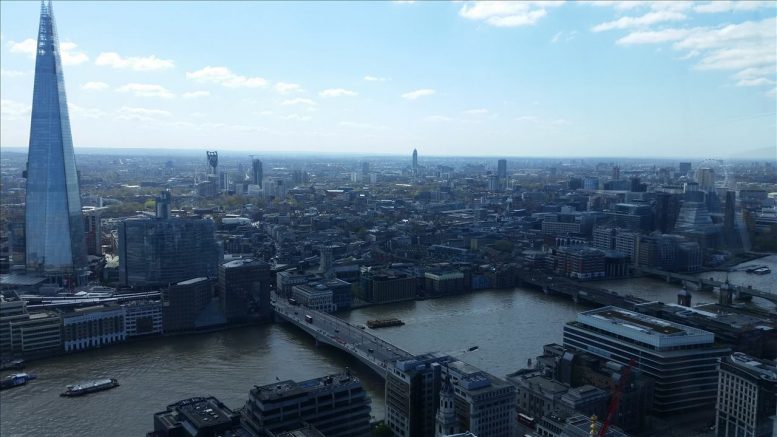The major political parties in Western democracies are scrambling to attempt to understand and respond to what appears to be a spreading revolution against mainstream conventional political thinking on many of today’s big issues.
The shock of Britain’s vote in June to leave the European Union is just one of a series of political earthquakes that have brought about, or seem likely to bring about, what had until recently seemed to be unacceptable policy changes.
Globalisation and economic liberalisation – which have been the big world changing ideas of the late 20th and early 21st centuries and which had appeared inexorable – are now being resisted in ways which even a year ago would have seemed impossible.
And in their urgent need to try to understand the factors which have so suddenly changed the course of these deeply entrenched policy and philosophical norms, political analysts have suddenly been giving a lot of attention to what is known as the Overton Window theory.
The key point about this theory – developed in the early 1990s by American political scientist Joseph P Overton – is that it helps explain how, what seemed entrenched, accepted policies and ideas, could suddenly face challenge and change from what had previously appeared to be radical and unacceptable alternatives.
Overton argues that politicians and policy makers are often caught unaware of – or unwilling to acknowledge – the effects on community attitudes of social change affecting their lives.
The first to tune into community discontent with these changes are populists who tap into and exploit and challenge the failure of the “elite” to respond to this discontent.
For politicians and policy makers dedicated to maintaining course on what they had regarded as inviolable fundamentals, the willingness of the community to embrace what had previously seemed unacceptable alternatives is a deep conundrum. For those who believe that the community is wrong, and that it has to be persuaded to reject the unacceptable extreme, the challenge is to shift the “window” back to the acceptable middle.
This captures neatly the story of Brexit.
But the Overton Window is moving throughout the democratic world.
And there is a clear case study to be found in Australia.
The “Window” moved nearly two decades ago in Australia on the issue of immigration and border protection – and has never moved back.
In the mid-1990s, an endorsed candidate for the governing, conservative Liberal-National Party coalition was dis-endorsed on the eve of a general election for making anti-immigration based racist statements. The candidate, Pauline Hanson, subsequently established her own political party, One Nation, which took policy positions to the right of the mainstream.
One Nation was xenophobic, opposed Asian immigration to Australia (arguing Australia was being “swamped by Asians”) and argued for a return to a nostalgic view of a “white Australia” in which Australian industry was protected from imports and “political correctness” was rolled back.
Significantly, the conservative prime minister at the time, John Howard, initially declined to confront Hanson’s views, arguing that what she was saying reflected the views of many Australians.
In doing so, he allowed the Overton Window to shift sharply to the right, a shift that allowed him to adopt hardline policies on border control and refugees when the wars in Afghanistan and Iraq resulted in a sharp rise in the numbers of “boat people” arriving on Australian shores. Those harsh policies are still the backbone of Australian border control, despite international condemnation.
Howard’s conservatives “harvested” the One Nation vote base and the party’s support faded, while Howard went on to a near record four successive terms in office.
But in the recent Australian election, One Nation had a resurgence driven by anti-globalisation sentiment, rejection of the science of global warming, spiced up with a new target identified by Hanson. She argued that Australia should stop Muslim immigration because it was being “swamped by Muslims”, a claim the mainstream political parties reject, both because the facts don’t support One Nation’s claims and because of the dangerous divisions that would be exacerbated by targeting Australian Muslims. But Hanson’s party still managed to win four seats in the Senate, giving it casting-vote power over government legislation. The latest polls show support for One Nation rising.
While anti-immigration and hostility towards refugees was the force that shifted the Overton Window to the right, the result has been a shift to the right more broadly – just as is now occurring in many other countries.
That shift will surely accelerate if Donald Trump wins the US Presidency.
But even if he doesn’t, the shift in Europe seems to have a momentum that challenges the fundamental, underlying principles on which the European project was based.
How to bring the affairs of western democracies back to re-embrace the values that guided them to relative peace and prosperity for more than seven decades, how to bring the Overton Window back from the right to the centre – is the leadership challenge of our times.
By Geoff Kitney

Other articles associated with today’s editorial:-
Editorial: Should they stay or should they go?
The political logic of a hard Brexit by Jacek Rostowski
The Game of Brexit by John Egan
For more information on migration statistics in Australia:-
Brexiters wrong: Australia has high immigration by Geoff Kitney




